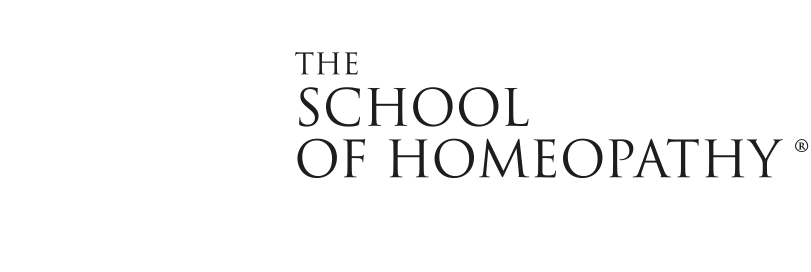


Homeopathy
Higher Diploma (Part 2)
Course Content
Looking at the plant and animal kingdom; the characteristics of those kingdoms to human behaviour; using the tools in homeopathy including Mappa Mundi and rubrics; how to manage difficult cases and overcome certain challenges; looking at research in homeopathy and the issues it faces; until arriving at the final unit of studying aspects of setting up a business and taking flight into your new profession.
Remedies Studied
Ambra Grisea, Cantharis, Corvus Corvus, Loganaceae Family.
Cases Studied
Sylvia – assignment case
Sebastian (Sore Tongue) – assignment case
Flossie – analysis case
Laura (Locked Joints) – analysis case
Anxiety – example case
Annabel (Arum T) – example case
Vince (Verat Album) – example case
Esther (Eating Problem) – assignment case
Tamara – assignment case
Silvia – analysis case
Sebastian (Sore Tongue) – analysis case
Chris (Crayfish) – example case
Debbie (Lac Delphinium) – example case
Elizabeth (Elaps) – example case
Fiona (Falcon) – example case
Peter (Epilepsy) – assignment case
Esther (Eating Problem) – analysis case
Suzanne – example case
Tom (Tachypnea) – example case
Tamara – analysis case
Indra – assignment case
Rachel (Rosacea) – assignment case
Mr DD 3rd Casetaking – example case
Peter (Epilepsy) – analysis case
Richard – example case
Indra – analysis case
Rachel (Rosacea) – example case
Lisa – assignment case
James (Young) – assignment case
Norman – example case
Rachel (Rosacea) – example case
Paul – example case
Full detail of each month is given below, with the aims and learning outcomes
Unit Twenty-One : Plants
Aims
This unit aims to familiarise you with the in-depth study of remedies from the plant kingdom in homeopathy. You will explore plant classification and the different plant families, how plant adaptations can relate to their signature and how the vital sensation can be perceived in members of the same botanical plant family. You will also look at plants in relation to the Sensation Method and miasmatic theory and how this method can be used to make remedy selection easier. In addition, you will study a group of remedies from a plant sub-family and analyse a further two homeopathic cases.
Learning Outcomes
At the end of this unit you will be able to:
- Describe the differences between plants and the other kingdoms
- Explain how the evolution of plants relates to survival
- Determine which human characteristics can be related to need of a remedy from the plant kingdom
- Describe the vital sensation of ten plant families
- Show how to use the repertory in choosing between plant families
- Map the miasms against a related group of homeopathic remedies
- Analyse, repertorise and differentiate effectively between remedies in a homeopathic case
-
Unit Twenty-Two: Animals
Aims
This unit aims to familiarise you with the in depth study of the animal kingdom in homeopathy. You will explore the use of zoological classifications in recognising characteristics of a remedy or groups of remedies from this kingdom. You will study how to relate this to human characteristics and homeopathic prescribing. You will look at a further three homeopathic remedies each related to a different animal grouping. In addition, you will continue your case studies and analysis.
Learning Outcomes
At the end of this unit you will be able to:
- Outline characteristics of the animal kingdom in relation to homeopathy
- Identify words and phrases belonging to animal classifications
- Determine which human characteristics can be related to the animal kingdom
- Compare and contrast three sea remedies in relation to their environment
- Analyse two homeopathic cases
-
Unit Twenty-Three : Integrated Approach
Aims
This unit aims to help you consolidate your learning to date and ensure you have a firm understanding of the many tools used in modern homeopathy. You will study how to use these tools effectively in your analysis of cases in order to find remedies suitable for your patients. The tools discussed include time-lines, miasms, direction of cure, rubrics, gestures, the Mappa Mundi, vital sensation, levels and kingdoms. In addition, you will further develop your case taking skills by applying an integrated approach to a new homeopathic case.
Learning Outcomes
At the end of this unit you will be able to:
- Discuss four key stages of the case taking process
- Describe six of the main tools used for analysing a case
- Outline case analysis methods and tools used during the key stages of the case taking process
- Compare and contrast the pros and cons of the six main analysis tools
- Illustrate the placement of six homeopathic remedies in the Mappa Mundi
- Analyse a case using the analysis tools studied
Unit Twenty-Four : Case Management
Aims
This unit will provide you with an overview of challenges to be found in case management and describe strategies for overcoming these challenges. There are many factors within a practice that may create obstacles to cure and you will be shown how to overcome these. You will be taught the key ingredients for a well-run practice, including record keeping and how to treat children and different situations that may present particular problems, such as over-sensitive patients. In addition, you will study and analyse a further two cases.
Learning Outcomes
At the end of this unit you will be able to:
- State what information should be kept on a patient registration form
- Discuss the aims of a Code of Ethics and Practice for homeopaths
- Explain the importance of patient confidentiality and identify the circumstances in which you may have to disclose information
- Identify ‘Never Been Well Since’ situations
- Critically analyse what to consider when treating first aid and acute situations
- Identify problems that could arise following a homeopathic prescription and explain how you would handle them
- Identify problems that could arise when dealing with patients and explain how you would handle them
- Analyse two homeopathic cases
Unit Twenty-Five : Introduction to Research Methods
Aims
This unit aims to introduce you to research methods used in homeopathy, including why it is important for the profession, the differences between methods and the steps involved in undertaking clinical trials. It will look at how the paradigm of the researcher influences the design and interpretation of research, how to critically read a research paper and the particular problems that face research in homeopathy. In addition you will analyse another patient case.
Learning Outcomes
At the end of this unit you will be able to:
- Define key research terms
- Describe how research method is intrinsically linked to research paradigm
- Differentiate between quantitative and qualitative approaches in research
- Outline the various stages in the research process
- Critically evaluate examples of research design for specific research questions
- Explain the importance of research to homeopathy
Unit Twenty-Six : Taking Flight
Aims
This unit aims to introduce you to the main aspects of setting up your own business so that you are ready to take flight into becoming a professional homeopath. It will cover factors such as branding, finding a suitable location, financial matters, the day to day details of running the practice and how to market yourself so you will begin to receive clients.
Learning Outcomes
At the end of this unit you will be able to:
- Develop a business plan
- Analyse the competitive market with a SWOT analysis
- Describe your services and benefits
- Analyse a patient journey through your practice and identify needs
- Define the vision, values and brand idea for your business
- Illustrate examples of your practice communication
- Critically analyse and describe your complete offering
- Analyse two homeopathic cases
.jpg)
The 4yr study programme offers a holistic approach to understanding homeopathy - different perspectives from the variety of teachers, experiential understanding of the mechanics and learning the nuts and bolts of many remedies! It has been an honour to be part of the schools learning community
Jeremy Mitchard, Graduate















